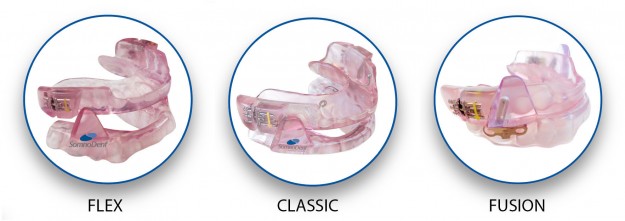

As mentioned on the snoring page, snoring is associated with a reduction in airflow at the back of the mouth. This is a potentially life threatening condition. For a number of patients snoring is associated with a disorder called sleep apnoea. Sleep apnoea occurs when breathing stops for periods of more than 10 seconds and these non-breathing periods occur more than five times per hour. The condition is considered mild when these non breathing events occur 5-15 times per hour, moderate at a level of 16-25 times per hour, and severe when it happens more than that.
One of the common symptoms associated with this condition is excessive day-time sleepiness. Feeling tired all the time can hugely affect quality of life. When energy levels are low, mood is negatively affected, concentration and academic performance is poor, and a patient's general health will suffer. Moderate to severe sleep apnoea has been associated with diabetes, hypertension and stroke. Sleep apnoea is diagnosed by sleep specialists with the aid of an overnight sleep study. Both are included below. These are the Epworth Sleepiness Scale and the StopBang questionnaires. Click on the links below to access these questionnaires. Other symptoms of snoring include waking suddenly during the night choking or gasping for breath and anxiety/depression.
Treatment of sleep apnoea is traditionally with a CPAP device (continuous positive airway pressure). Essentially this involves wearing a breathing mask over the nose or mouth when sleeping. Air is pumped through the mask to keep the airway open. This device is the gold standard when it comes to treating sleep apnoea. However, unfortunately, patients tend to find it very difficult to get a good nights sleep with this device, as air is continuously being blown directly at the face to maintain an open airway. As a result, even though very effective, patients find these devices uncomfortable to use and compliance tends to be poor.
However in many cases, patients with mild to moderate sleep apnoea can also be effectively managed with oral devices such as those described above. These devices are called "mandibular advancement devices" and work very well when snoring is caused by the tongue falling back during sleep and closing the airway. Dr Christine Barrett has carried out specialist training in the construction of these devices.

If you would like more information on this topic please call 021 4363053 to schedule an appointment.
More information is also available from the following sources: